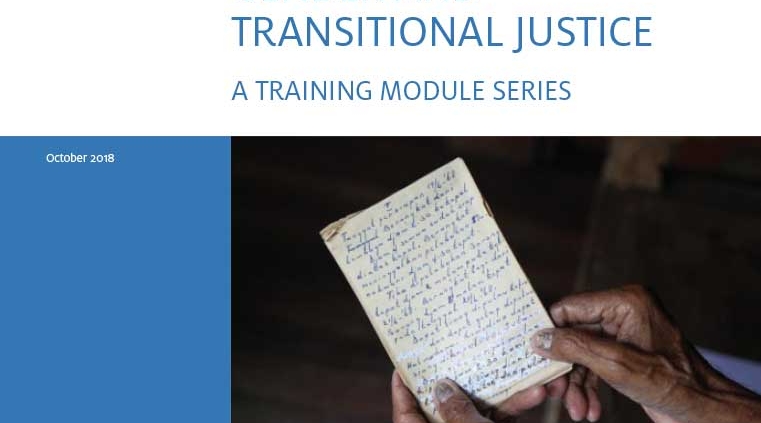KELLI MUDDELL AND SIBLEY HAWKINS GENDER AND TRANSITIONAL JUSTICE
In many ways, the past few decades have seen considerable progress when it comes to bringing discussions about gender inequality, discrimination, and gender-based violence into the public eye. Within the field of transitional justice, the inclusion and meaningful participation of women has become a relative norm. Too often, however, good intentions and policy commitments do not translate into effective implementation.
Historically, the experiences of women and victims of gender-based violations have not been adequately addressed by transitional justice processes, nor have women had sufficient representation or opportunities for participation within accountability, acknowledgment, and reform measures. This has led to serious flaws in even those transitional justice efforts that can otherwise be considered relative successes. These shortcomings include underreporting of certain violations; policies and procedures that make it difficult for women to participate in transitional justice processes or access benefits; findings that reflect only a partial understanding of the full impact of violations; and underrepresentation of sexual and gender-based crimes within criminal proceedings.
These failures often come from a lack of sufficient knowledge and understanding to implement processes in ways that encourage women’s participation and adequately address both gender-based violations and the gendered consequences of human rights violations. Without the strong engagement of women and a solid understanding of how and when violations have affected men and women differently, transitional justice processes cannot successfully contribute to a more just society for all. This training module, and the others that accompany it, seek to provide comprehensive and actionable guidance and information on how to more meaningfully address women’s involvement in transitional justice processes. The modules seek to augment practitioners’ understanding of the nexus between gender, violence, repression, and diverse efforts to provide truth, justice, acknowledgment, and reform to victims.

Owner/Developer : ICTJ
Language : English

